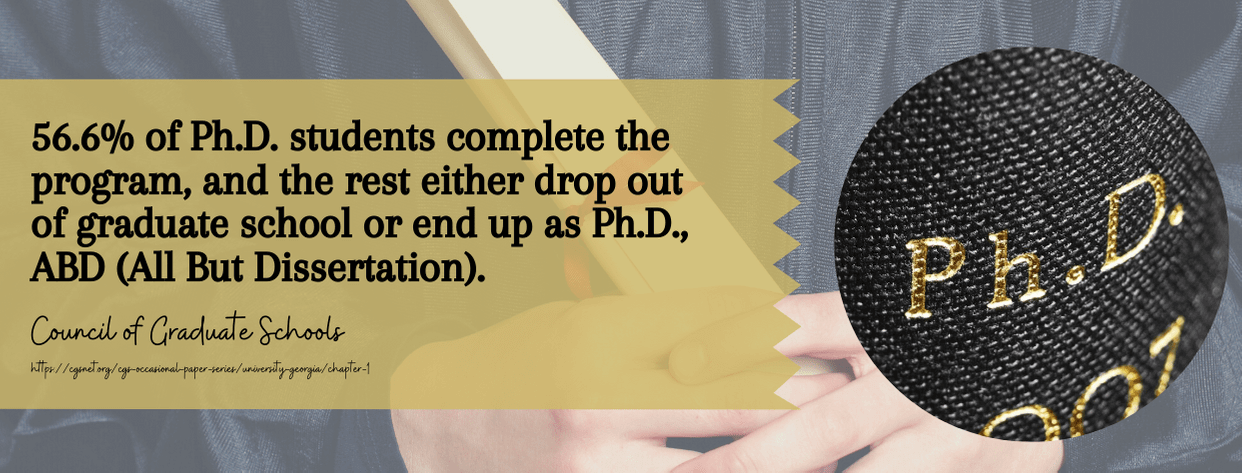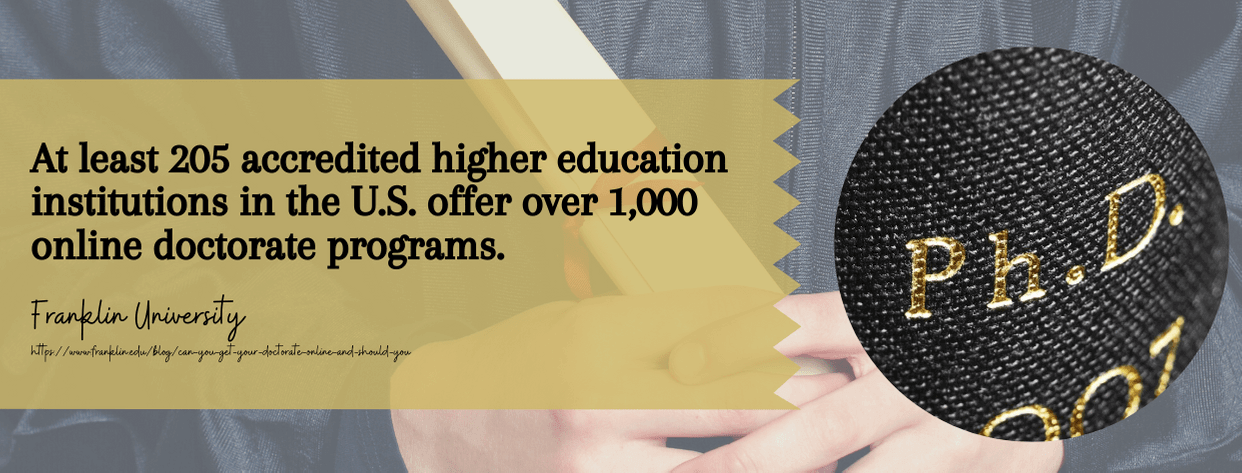Are you ready to become a Ph.D Candidate? An advanced academic or professional degree, Ph.D. is short for Doctor of Philosophy. It is a postgraduate degree awarded by accredited universities and higher education institutions after completing all of the degree requirements.
A Ph.D. degree or a doctorate or doctoral degree is globally recognized as the highest level of academic degree and presupposes the completion of an original dissertation or research.

A traditional doctorate follows a three- to four-year degree, but some institutions offer opportunities to fast-track the degree, subject to stringent requirements.
After completing your proposal, you need to impress a panel of experts in an oral defense to prove the necessity of your research. When you have defended your thesis successfully, you can move forward with writing your dissertation.
Let’s set the record straight as we define what a Ph.D. student and a Ph.D. candidate is, and find out their similarities and differences! Use these quick links to easily navigate the questions:
- Why pursue a Ph.D.?
- Will a Ph.D. degree give me an advantage career-wise?
- I am not a professor nor an instructor, should I still get a Ph.D.?
- What are the basic requirements for one to become a Ph.D. Student?
- Who is a Ph.D. Student?
- How long does it take for a Ph.D. Student to qualify as a Ph.D. Candidate?
- Do I need to write a full dissertation as a Ph.D. Student?
- What are the requirements that I need to comply with for me to become a Ph.D. Candidate?
- Who is a Ph.D. Candidate?
- What must I do after qualifying as a Ph.D. Candidate?
- Can I now include a Ph.D. in my credentials?
- How long does it take to finish my Ph.D.?
- I am a working professional. Is there a Ph.D. program designed for me?
- Can I complete my Ph.D. degree fully online?
Why pursue a Ph.D.?
If you are a working professional who’s in college or a typical college student thinking of advancing your academic credentials, pursuing a Ph.D. may be a wise choice!
Among the many reasons why students pursue a Ph.D. is for long-term degree goals, which ultimately lead to a career in academia. A Ph.D. is considered an essential qualification for anyone who intends to teach in the university as an instructor or professor.
While those who wish to engage in research, throughout your Ph.D., you will be allowed to conduct your research. You can make important discoveries that will bring a positive impact within your field.
Based on the data posted by the McKinsey Global Institute, we face a shortage of scientists in the world. As the global economy moves toward a more innovative approach, demand for Ph.D. degree holders will increase significantly. Most importantly, once you decide to enroll in a Ph.D. program, you will gain unparalleled analytical and research skills that will become your footstool as you move up in your career ladder.
Will a Ph.D. degree give me an advantage career-wise?
Yes, having a Ph.D. will give you a competitive advantage. Once you complete your Ph.D. degree, you will become part of the rare commodity of people who holds an advanced degree.
The U.S. Census Bureau discloses that in 2019, only 4.5% of the American population completed a doctorate. With these statistics in mind, you will have a more competitive academic credential than 95.5% of the country.
It is worth noting that since the year 2000, this percentage has doubled. Now, it is estimated that 13.1% of American adults have obtained an advanced degree. This is a drastic increase from only 8.6% in 2000, which translates to 4.5 million Ph.D. degree holders in the United States.
Having a doctorate has a significant advantage. Doctorate holders are capable of generating new data and information that fills the gap in the body of knowledge in the field. Being trained professionals who are highly skilled in critical thinking, decision-making, and complex problem-solving are the top three skills that separate a Ph.D. degree holder from other professionals.
The Bureau of Labor and Statistics discloses that Ph.D. degree holders receive higher earnings and lower unemployment rates than bachelor’s or master’s degree holders.
I am not a professor nor an instructor, should I still get a Ph.D.?

Academia is a glorious field, but the belief that a Ph.D. only prepares you for academia is a myth. Professors and instructors play an equally important role in the lives of their students as they charge towards achieving their academic goals.
If you want to earn tenure as a professor in a top-tier college or university, having a Ph.D. will significantly increase your odds of securing a position. However, even if you are not a member of academia, pursuing a Ph.D. degree is still a great investment that you should seriously consider.
If you have a passion for research, you can choose to become a scholar, if not a professor. Research is central to the pursuit of an advanced degree, especially a Ph.D. Doctorate holders who do not teach in a university or higher education institutions can focus on doing research. Researchers publish peer-reviewed papers that reach students, professors, and fellow researchers who share the same interest in their specific field.
Choosing a research-focused career over a tenured teaching job allows you to pursue intellectual interests outside the academe. With a chance to apply and win research grants, you will have the resources to do extraordinary things in your field.
What are the basic requirements for one to become a Ph.D. Student?
Admission requirements may differ from one institution to another. Your admission to any of the Ph.D. programs will depend on your academic records, both at the bachelor’s and master’s levels. Most importantly, the admissions officer will evaluate your potential research capabilities.
In the United States, universities and higher academic institutions require that applicants hold an honors degree or a master’s degree equivalent. Aside from this, having high academic standing will increase your chances of getting into the top research institutions in the country.
The admissions office will also assess an applicant’s bachelor’s degree, and graduating at the top of your class will also boost your chances. But some institutions assess applications solely based on your master’s degree academic record.
Funding for your research may also be a deciding factor on your admission. If you depend on study or research grants and loans, you need to have an exceptional academic track record to impress the admission office. But, if you are self-funded, you may have a competitive advantage over other applicants who are dependent on grants.
You also need to find a tenured professor to serve as your advisor while you complete your Ph.D. before your chosen institution may admit you to the program.
Below are the standard requirements for admission:
- Transcript of records of both your undergraduate and graduate degrees
- Resume or curriculum vitae
- Recent Graduate Record Examinations (GRE) or Graduate Management Admission Test (GMAT) scores
- Letters of recommendation from your peers and mentors
- Statement of purpose
Who is a Ph.D. Student?
After successfully complying with the admission requirements of the Ph.D. program, you are now officially a Ph.D. student. You will begin your academic journey towards completing a three- or four-year research program. Postgraduate academic institutions serve as fertile research environments that breed future scientists and experts in different fields of study.
Ph.D. students are introduced to the world of independent research. Students study under the close supervision of an academic supervisor or advisor who has a tenured position as an associate professor or higher. As Ph.D. students, collaboration with your advisor is central to developing a valuable addition to the pool of literature in a given subject.

How long does it take for a Ph.D. Student to qualify as a Ph.D. Candidate?
While in graduate school, your main focus is authoring original research, which involves data analysis and evaluation. Depending on your program and department, you may be given the leeway to formulate your area for your research.
However, there are Ph.D. programs that present their students with a selection of research proposals for you to choose from. These proposals are often formulated and peer-reviewed by program supervisors.
You can complete your proposal at a certain term, or year-round, depending on your university or academic institution. Ph.D. students are required to submit a statement or a proposal to be submitted at the end of the term. This will usually take up the first two years of your journey towards your doctor of philosophy degree.
Do I need to write a full dissertation as a Ph.D. Student?
Writing original research is, arguably, the ultimate goal of hundreds of thousands of Ph.D. students. This requirement may vary from one institution to another, or even between subjects.
A doctoral program develops a student’s field of specialty to sharpen their skills to advance their position in their industry. Some doctorate programs require students to attend classes and take examinations, while some require Ph.D. students to handle a teaching load or serve as research assistants.
In the early phases of your doctoral study, you will focus on your chosen field of study. Eventually, you will dive deeper into enhancing your understanding of your specialization to better prepare you for writing your dissertation. At this point, you will start writing your proposal in preparation for your oral defense before a panel of esteemed specialists in your field.
During the final years of graduate school, your dissertation should be your priority. This way, you can move forward with your degree and become a Ph.D. Candidate.
What are the requirements that I need to comply with for me to become a Ph.D. Candidate?
Becoming a Ph.D. candidate from being a Ph.D. student will take time, even more so, your utmost dedication. Before you can be considered a Ph.D. Candidate, you need to submit a minimum of twenty- to thirty-page paper at the end of your first year in graduate school.
Second, you must have completed at least two years of full-time coursework. You will also be asked to show how proficient you are in the research language. In some programs, you need to submit a grant application.
Then, you need to have a draft of your dissertation prospectus. At this point, your prospectus must include your literature review and methodology.
Most importantly, you need to successfully defend your proposal before a committee or panel of experts. Once the committee approves your proposal and you pass the qualifying exams, you can now refer to yourself as a Ph.D. candidate.
Who is a Ph.D. Candidate?
After getting approval for your dissertation proposal or prospectus from the panel, you can now refer to yourself as a Ph.D. candidate. This means you get the green light to start writing your dissertation. As a Ph.D. candidate, you can use Ph.D.(c) as part of your credentials.
It signifies that you have now advanced to candidacy. You have reached the final years of your doctoral study, which will be crucial in the trajectory of your academic career.
Aside from having to defend your proposal, some institutions also require Ph.D. candidates to pass a weeklong examination. This often involves three separate written exams that may last for seven hours. You must also pass an oral examination. In this exam, your supervisor, your advisor, and a panel can ask you questions that are related to your discipline.
What must I do after qualifying as a Ph.D. Candidate?

Now that you are a Ph.D. candidate, you can now start working on your dissertation, but before you begin working, you should take a well-deserved rest.
Having reached your candidacy means you have finished your doctoral studies and can now focus on your research. Writing a research paper entails that you are knowledgeable in your chosen subject.
Reading related literature will better equip you in identifying the gaps in the literature. This way, you may be able to add new knowledge to the subject and through testing your hypothesis and gathering relevant data for your research. Data collection is one of the most critical parts of research, and the viability of your study depends on it.
Moving forward, the data you have collected needs to be processed or analyzed for you to draw up a conclusion. The entire process of writing your dissertation is tedious, so you need patience, dedication, and a passion for research.
Can I now include a Ph.D. in my credentials?
As a Ph.D. candidate, you can now use a Ph.D.(c) as part of your credentials. It signifies that you have completed all of your coursework and have now advanced to candidacy.
The (c) means you are currently working on your dissertation. However, including this title in your credentials is inappropriate, even wrong. This designation is very often misused that it has become common among candidates.
First, because a candidacy does not equate to a degree, it is not a credential or a status that is awarded by any university, college, or higher education institution. Also, you can be a candidate for a considerably long time. Unfortunately, some Ph.D. candidates never comply with the dissertation requirement and progress to earning their Ph.D. degree.
In the world of postgraduate studies, they are called Ph.D., ABD, or “all but dissertation.” Unfortunately, according to the Council of Graduate Schools, 56.6% of Ph.D. students complete the program, and the rest either drop out of graduate school or end up as Ph.D., ABD.
How long does it take to finish my Ph.D.?
The answer to this will depend on the path or subject you choose.
In 2017, the median completion period for completion of a doctorate program was 5.8 years according to the Survey of Earned Doctorates. Typically, a Ph.D. degree will take four to six years to complete, but several factors may prolong this period.
One factor is your field or discipline. Programs like humanities and arts take more than seven years based on the same survey.
Another factor is your academic background. Applying for a Ph.D. program typically requires that you have already completed your master’s degree. This means more time spent in graduate school.
I am a working professional. Is there a Ph.D. program designed for me?
Yes, there are academic institutions that offer professional doctorate degrees specifically designed to accommodate working professionals.
A professional doctorate is a Ph.D. equivalent that allows experienced professionals who aim to earn a doctorate. You can leverage their industry expertise through gaining an academic degree that translates to credibility, and influence in their field.
Students in the program often bring with them years of practical work experience and expertise in various areas, including information technology, business administration, finance, and education. This background will serve as the primary focus of your doctoral research. You can apply your first-hand experience and knowledge in solving real-world problems.
Similar to a Ph.D. degree, you will learn and develop your research methods, design your proposal, and present your findings through writing your doctoral study.
Can I complete my Ph.D. degree fully online?
Yes, you can complete your Doctor of Philosophy degree fully online. Unsurprisingly, many Americans resolve to online education to earn a degree, especially an advanced or professional degree.
In a United Nations Study, the U.S. workforce is made up of 85% males and 67% females who are working beyond 40 hours per week. Individuals with family and other obligations are also usually drawn toward online doctorate programs.

An online Ph.D. program is an attractive offering that more and more working professionals seek. Now, there are at least 205 accredited higher education institutions in the county that offer over 1,000 doctorate programs that can be completed online. Earning your Ph.D. online does not necessarily mean that it will be easy. It can easily be as demanding as the traditional format.
Most importantly, an online doctorate bears the same credibility as the one earned on-campus. It is advised that before you enroll in an online program, you check the accreditation of your college or university. This way, no time, money, or effort will be put to waste.
For additional information, check this out:
